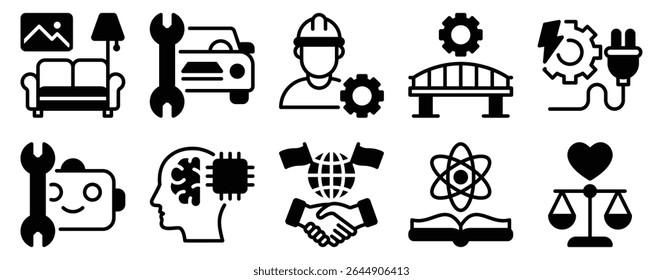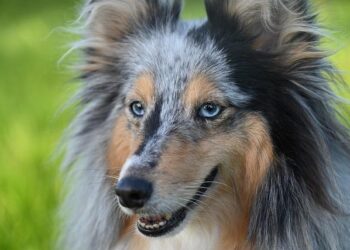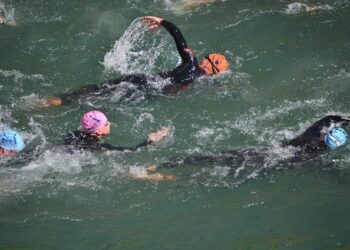The Finnish Institute of International Affairs (FIIA) recently hosted a landmark conference focusing on the evolving cooperation between the Nordic states and the autonomous regions of the Faroe Islands, Greenland, and Ă…land. Highlighted as a model of sustainable democracy, the event brought together policymakers, scholars, and regional representatives to discuss how inclusive governance and collaborative frameworks in the North Atlantic can serve as an example for democratic resilience and regional integration across Europe. This gathering underscored the unique political and cultural ties that bind these nations and territories, emphasizing the importance of dialogue and partnership in addressing shared challenges.
Strengthening Regional Ties Exploring Democratic Practices Across Nordic States and Autonomous Territories
Nordic collaboration continues to set a benchmark in sustaining democratic values through inclusive regional partnerships. The workshop gathered policymakers, experts, and community leaders from Finland, Sweden, Norway, Denmark, Iceland, along with representatives from the Faroe Islands, Greenland, and Ă…land. Discussions highlighted how autonomous territories maintain robust self-governance while contributing to the broader Nordic political ecosystem. Emphasis was placed on transparency, citizen engagement, and adaptive governance models that reinforce social cohesion and resilience amid evolving geopolitical challenges.
Key topics explored during the sessions included:
- Cross-border policy coordination to address climate change and sustainable development
- Innovative electoral systems promoting proportional representation and minority inclusion
- Digital democracy tools enhancing public participation and decision-making efficiency
- Cultural autonomy and language rights as pillars of democratic identity
| Territory | Governance Model | Democratic Strength |
|---|---|---|
| Faroe Islands | Parliamentary autonomy | High citizen participation |
| Greenland | Self-government with home rule | Strong community-voter engagement |
| Ă…land Islands | Demilitarized autonomy | Robust minority protections |
Innovations in Sustainable Governance Lessons from the Faroe Islands Greenland and Ă…land Model
The unique experiences of the Faroe Islands, Greenland, and Ă…land demonstrate how localized governance can evolve into robust models of sustainable democracy. These regions have successfully integrated traditional decision-making frameworks with modern political systems, emphasizing transparency, community engagement, and environmental stewardship. Their approaches highlight the importance of balancing autonomy with cooperation in multi-level governance, ensuring that local identities and priorities are respected while contributing to broader Nordic goals.
Key elements fueling these innovations include:
- Inclusive stakeholder participation ensuring all voices, including indigenous groups, are heard.
- Adaptive policy frameworks responsive to climate change and socio-economic shifts.
- Cross-border cooperation fostering knowledge exchange without compromising regional sovereignty.
| Region | Governance Focus | Innovation Highlight |
|---|---|---|
| Faroe Islands | Community-driven resource management | Autonomous fisheries policies aligning local interests with sustainability |
| Greenland | Indigenous representation in decision-making | Integration of Inuit traditional knowledge into environmental legislation |
| Ă…land | Multilingual governance and rights protection | Strong minority language policies enhancing social cohesion |
Policy Recommendations Enhancing Cooperation for Resilient and Inclusive Nordic Democracies
To fortify democratic resilience and inclusivity across the Nordic region, policymakers must prioritize streamlined communication channels that foster transparency and mutual understanding. Strengthening institutional frameworks at both regional and municipal levels will empower minority communities in the Faroe Islands, Greenland, and Ă…land, ensuring their voices actively shape governance. Enhancing educational and cultural exchange programs was also emphasized as a vital tool to promote shared values while respecting local identities.
- Establish a Nordic Democracy Innovation Fund to support grassroots initiatives and cross-border collaborations.
- Implement digital platforms for real-time policy dialogue among autonomous territories and central governments.
- Expand language and civic education programs emphasizing inclusivity and participation.
| Recommendation | Target Group | Expected Impact |
|---|---|---|
| Nordic Democracy Innovation Fund | Grassroots Organisations | Enhanced local initiative capacity |
| Digital Policy Platforms | Autonomous Territories | Improved communication & inclusivity |
| Language & Civic Education | Civic Participants | Broader democratic engagement |
Moreover, fostering cooperation initiatives that incorporate sustainable development goals will augment the democratic fabric of the Nordic states and their autonomous regions. The conference highlighted the urgency of addressing climate-related challenges collectively, leveraging shared resources and indigenous knowledge to build adaptive capacities. By aligning governance strategies with social equity and environmental stewardship, Nordic democracies can serve as a global model for resilience and inclusiveness.
The Way Forward
The recent conference highlighted the unique collaboration between the Nordic states and the autonomous regions of the Faroe Islands, Greenland, and Ă…land as a compelling example of sustainable democracy in action. By fostering dialogue, shared governance, and mutual respect, these partnerships underscore the potential for regional cooperation to address common challenges while preserving local autonomy. As the Finnish Institute of International Affairs emphasizes, this model not only strengthens political bonds but also sets a precedent for democratic resilience amid a shifting global landscape. Continued engagement and knowledge exchange will be vital to sustaining and expanding this cooperative framework in the years ahead.
















